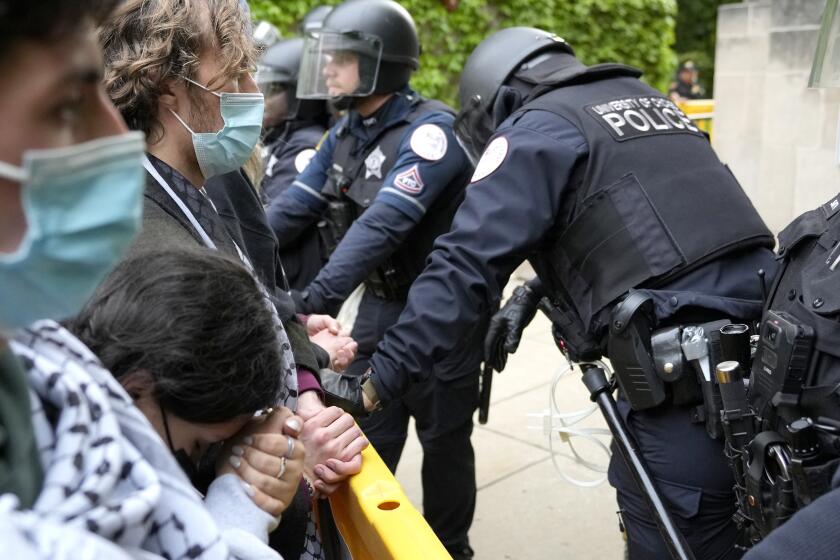College District Accountability
Re: “Community College Labor Talks,” March 18, 1998.
Charlene Arnold’s letter continues the union’s attempts to mislead the public. The union chooses to overlook the accountability measures that determine the flow of funds to this district--and to their pocketbooks. The district office performs most if not all of the reporting functions that guarantee the continued flow of these dollars. The district office also processes faculty payroll and handles their health insurance and other employment-related matters.
Union members repeatedly talk about the robber barons at the district office who contribute nothing to the educational process. In fact, it is the dedicated staff at the district office who make it possible for faculty to teach without having to prepare accountability reports or worry about how they will get paid.
Ms. Arnold talks about board discussions to purchase certificates of participation with a 20-year debt retirement. She alleges the district will over-invest in short-lived technology and finance the purchase of a new district office.
The purchase of COPs is a traditional approach for community colleges when funding major infrastructure projects. The board’s discussions have not resulted in a decision on the length of debt service repayments. There are a number of options, including 20-year, 10-year and other time frames that will be explored, but none of these options includes discussions about a new district office.
The fact is that the district must invest in new technology to gather student-related data and meet state reporting requirements for the year 2000 and beyond. And this technology commitment would include PCs for every full-time faculty member, a benefit that Ms. Arnold fails to report.
Ms. Arnold talks about “how many items the union has agreed to and how many times the district has made regressive proposals.” The public should know that the district has repeatedly given the union proposals and has received nothing substantive or reasonable in return. The Public Employment Relations Board has dismissed all of the union’s allegations that the district has bargained in bad faith.
The union negotiating team should redirect its energies to developing a reasonable counter-proposal. That would be the first step in resolving the negotiations stalemate. If the district and the union could reach a contract settlement, Mr. Currier’s $140-per-hour services would no longer be required.
The district’s core message in these negotiations is that it will no longer submit to unreasonable union demands that threaten fiscal stability. This is a message that the union finds hard to accept.
NORMAN J. NAGEL
President, Board of Trustees
Ventura County Community
College District
Ventura



